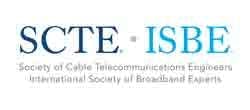The SCTE/ISBE has named six finalists in its Adaptive Power Challenge. The challenge was created by the SCTE in partnership with Comcast (NASDAQ:CMCSA) and Liberty Global (NASDAQ:LBTYA).
At the SCTE/ISBE Energy 2020 plenary session at CableLabs, concepts submitted by Alpha Technologies, Technetix, and Teleste were recognized as finalists in the Established Enterprise category, while Energy Cool, Robert F. Cruickshank III, and SOFC.nl Holding B.V. advanced within the Breakthrough Organization category.
The finalists will compete at SCTE/ISBE Cable-Tec Expo 2018 next month in Atlanta. Each category's winner will receive $10,000 and the opportunity to present its solution directly to the biggest cable system operators in the world. Awards will be presented on Tuesday, Oct. 23 in Innovation Theater on the show floor.
"Narrowing the field from the 20 submissions was a daunting challenge," said Sam Khola, director, sustainability for Liberty Global. "What ultimately set the finalists apart was their sharp focus on solving energy problems within the network along with the immediate practicality of their solutions."
"There was an incredible diversity of thinking across all of the entries that demonstrated real understanding of the power issues that face our industry," said Derek DiGiacomo, senior director, energy management programs and business continuity for the SCTE/ISBE. "With the high quality of the submissions in general, it's entirely possible that more organizations than just the six finalists will attract the attention of MSO technologists."
Competition entrants were able to submit concepts in three areas: Demand Response; Monitoring and Measurement; and Supply and Control. Entries were evaluated by judges from CableLabs, Comcast, Cox, Liberty Global, and Canada's Rogers and Shaw. The six finalists will present their solutions during the Energy 2020: Adaptive Power Challenge Session on Tuesday, Oct. 23, at Cable-Tec Expo. The finalists are:
- Alpha Technologies' Enhanced Power Systems, which would enable operators to extend the amount of time a system will last on standby power - often even without generators - by leveraging additional run time available with nodes in a reduced-power setting. (Demand Response)
- Technetix's Intelligent Power System, which would reduce current through high-power amplifiers (hybrids), saving up to 10% power per device as well as reduced power losses within the cabling, enabling significant power savings without reducing service quality. (Supply and Control)
- Teleste's Make Sense, offering three alternatives for operating existing amplifiers with lower bias current when lower network usage allows amplifiers to run below their 1.2 GHz maximum capacity. Teleste maintains that in those situations, power can be reduced while keeping the quality of end-use experience intact. (Supply and Control)
- Energy Cool's Energy Cloud, which would utilize distributed UPS batteries to deliver demand response services to the power grid. Field tested in Denmark, the solution could aggregate a high number of individual sites, presenting and controlling them as one combined site to the power grid and allowing testing and monitoring of UPS batteries for high reliability. (Demand Response)
- Robert F. Cruickshank III's Grid over Broadband: Jointly Optimizing Electric Power Generation and Residential Electrical Use, which supports the power grid by using the superior speed and two-way connectivity of the broadband network to enable the existing electrical grid to deliver and manage power in a more effective and efficient way, creating new business opportunities for cable operators while simultaneously addressing environmental concerns. (Supply and Control)
- SOFC.nl Holding B.V.'s Distributed Negative Emission SOFC Power, which would address demand by using small Solid Oxide Fuel Cells to directly supply additional power at the location where it is required. The solution would allow power resources to be kept to a minimum while enabling power to be delivered when necessary. (Demand Response)
Produced under the auspices of the SCTE/ISBE Energy 2020 program, the Adaptive Power Challenge is intended to leverage the Adaptive Power System Interface Specification (APSIS) (ANSI/SCTE 216 2015) and related material that have been created by the SCTE/ISBE Standards Program.
